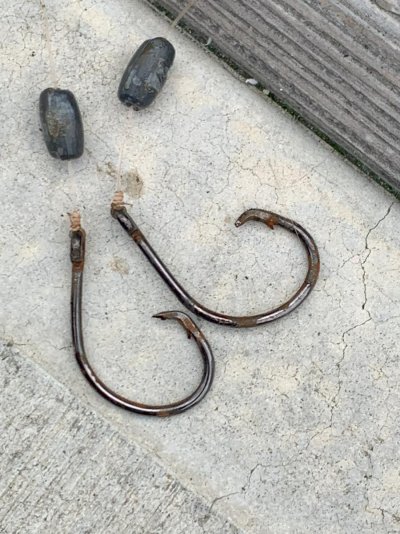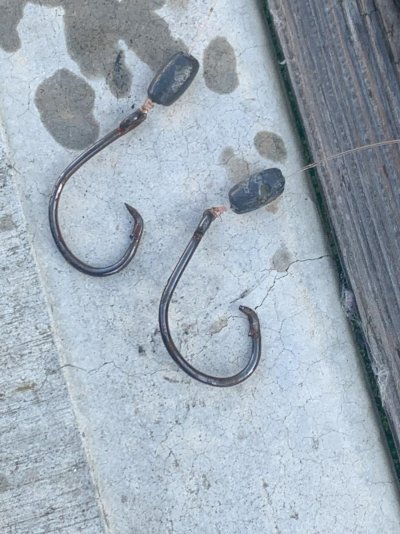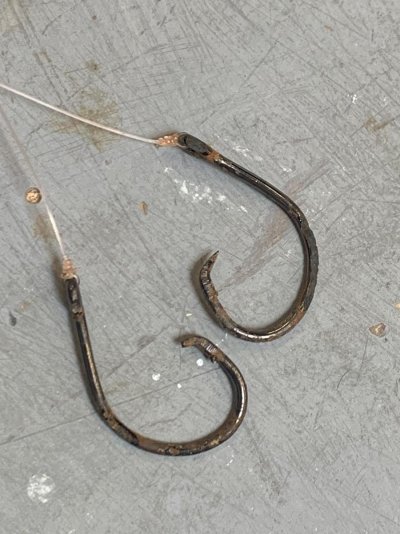guy with a boat
Guru
[FONT="]I’ve been fishing most of my life and have always heard that a hook left in a fish will rust away quickly. The specifics vary but often suggest that the hook goes away (rusts, “dissolves”, falls out, etc) pretty quickly. I’d like to believe it, but I’ve always had a hard time reconciling that with the rate of corrosion that I see with similar metals in every other context.[/FONT]
[FONT="]After finding very little in the way of legitimate testing of the concept, I decided to do my own amateur research project. I used Eagle Claw hooks (decent quality but not premium) with a finish that looks like gun blueing. Not sure what it is, but its not a stainless hook and not plated, but also not a cheap hook with no protection at all.[/FONT]
[FONT="]I put two hooks on pieces of mono with a small sinker and hung them in the saltwater in the harbor here in SoCal. The location has good water flow from tide changes and a fair amount of boat traffic. Depth of one hook was about 3' below the surface and the other was at 7'.[/FONT]
[FONT="]Here are the new hooks before going in the water:[/FONT]
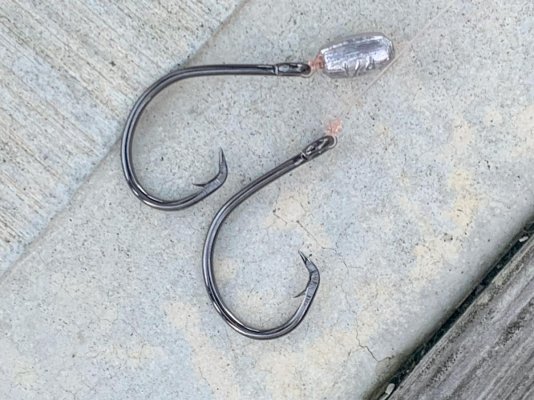
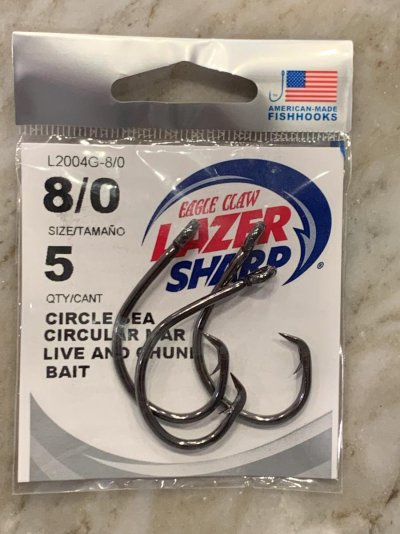
After one week in the saltwater, they have some light surface rust:
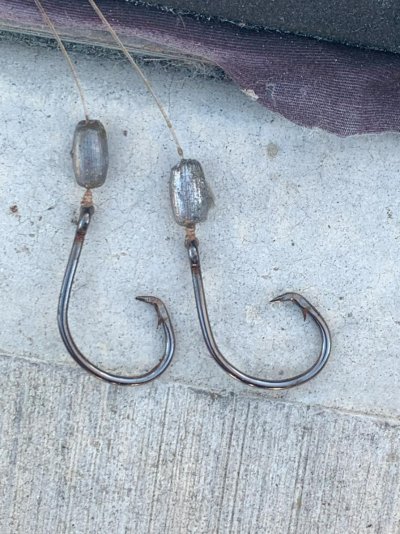
After another week in the water (2 weeks total):
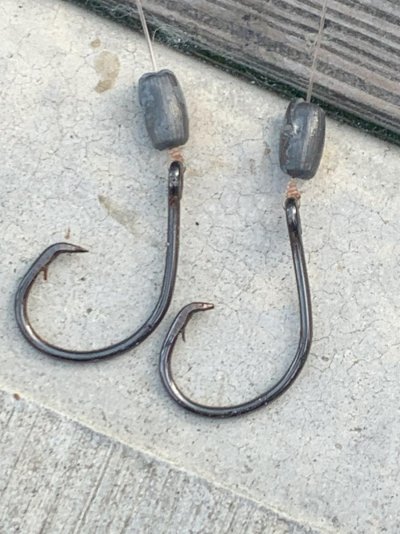
And after 3 weeks in the water:
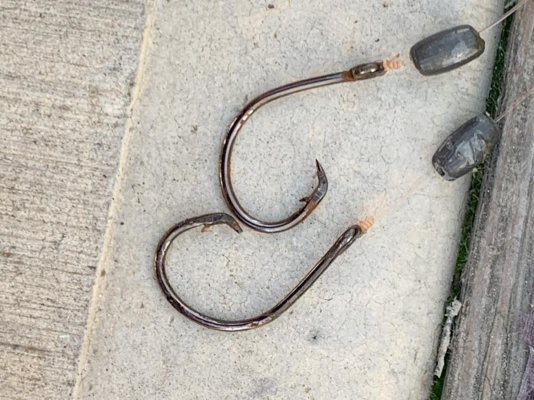
[FONT="]
[/FONT]
[FONT="]
[/FONT]
[FONT="]After finding very little in the way of legitimate testing of the concept, I decided to do my own amateur research project. I used Eagle Claw hooks (decent quality but not premium) with a finish that looks like gun blueing. Not sure what it is, but its not a stainless hook and not plated, but also not a cheap hook with no protection at all.[/FONT]
[FONT="]I put two hooks on pieces of mono with a small sinker and hung them in the saltwater in the harbor here in SoCal. The location has good water flow from tide changes and a fair amount of boat traffic. Depth of one hook was about 3' below the surface and the other was at 7'.[/FONT]
[FONT="]Here are the new hooks before going in the water:[/FONT]


After one week in the saltwater, they have some light surface rust:

After another week in the water (2 weeks total):

And after 3 weeks in the water:

[FONT="]
[/FONT]
[FONT="]
[/FONT]

